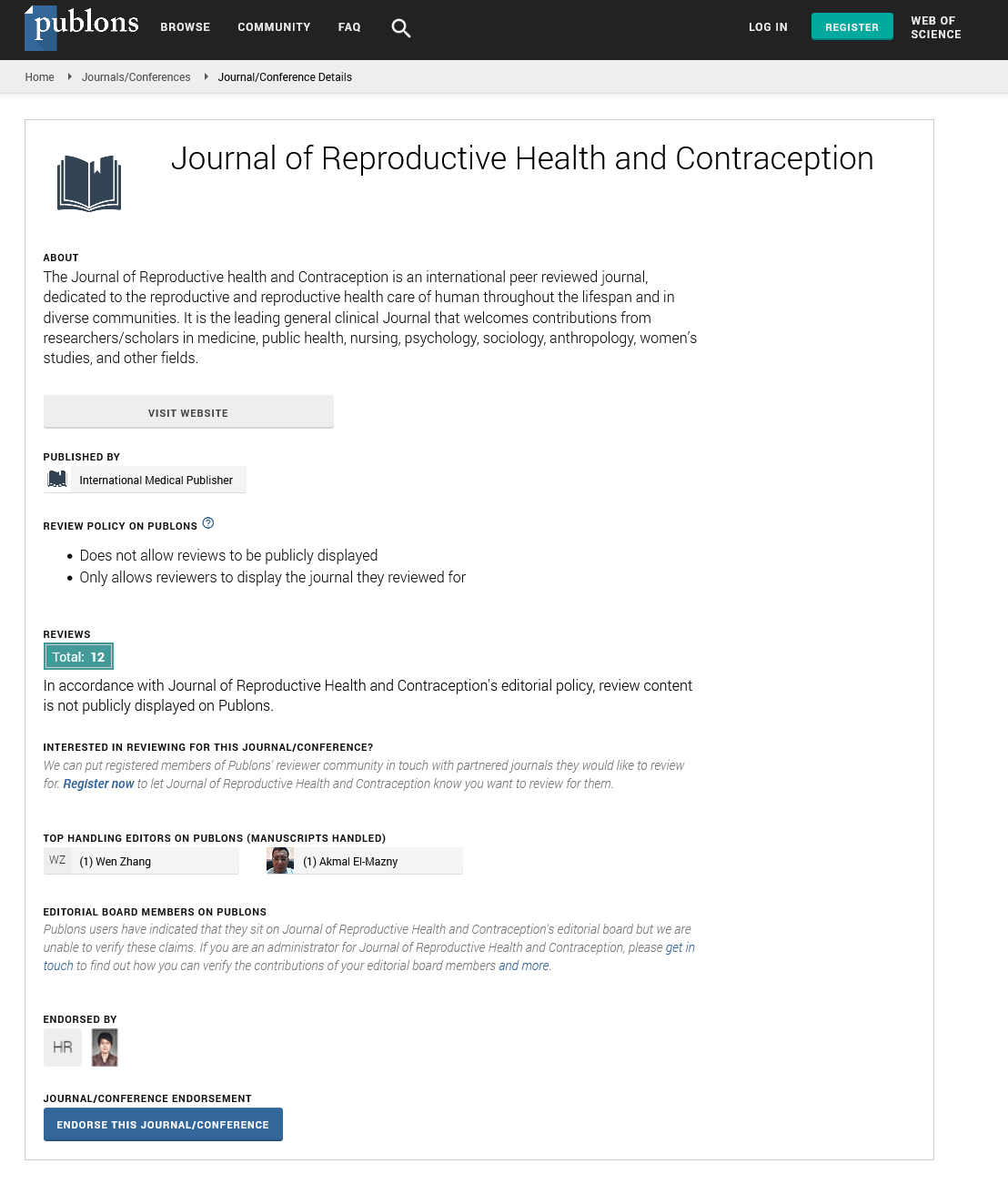ISSN : 2471-9749
Journal of Reproductive Health and Contraception
Environmental Toxicant Induced Epigenetic Transgenerational Inheritance of Disease: Generational Toxicology
International Congress on Midwifery and Maternal health - May Webinar
May 19-20, 2021 | Webinar
Michael K. Skinner
Washington State University, USA
ScientificTracks Abstracts: J Contracept Stud
Abstract
Transgenerational effects of environmental toxicants significantly amplify the biological impacts and health hazards of these exposures. One of the most sensitive periods to exposure is during fetal gonadal sex determination when the germ line is undergoing epigenetic programming and DNA re-methylation occurs. Previous studies have shown that toxicants (e.g. Glyphosate) can cause an increase in adult onset disease such as infertility, prostate, ovary and kidney disease, cancers and obesity. Interestingly, this effect is transgenerational (F1, F2, F3 and further generations) and due to a permanent (imprinted) altered epimutation of the germline. The transgenerational epigenetic mechanism appears to involve the actions of an environmental compound at the time of sex determination to permanently alter the epigenetic (e.g. DNA methylation) programming of the germ line that then alters the transcriptomes of developing organs to induce disease susceptibility and development transgenerationally. In addition to DNA methylation, alterations in sperm ncRNAs and histone retention have also been observed. A variety of different environmental compounds have been shown to induce this epigenetic transgenerational inheritance of disease including: fungicide vinclozolin, plastics BPA and phthalates, pesticides, DDT, dioxin, hydrocarbons and herbicides like atrazine and glyphosate. Interestingly, exposure specific epigenetic alterations were observed between the specific toxicants. Recently we have identified in human’s epigenetic biomarkers for parental germ cell transmission of offspring disease states such as infertility, autism and arthritis. The suggestion that environmental toxicants can reprogram the germ line to induce epigenetic transgenerational inheritance of disease, which is a new paradigm in disease etiology, and indicates generational toxicology, needs to be assessed in the future.
Biography
Michael Skinner is a professor in the School of Biological Sciences at Washington State University, Pullman Washington, USA. He did his B.S. in chemistry at Reed College in Portland Oregon, his Ph.D. in biochemistry / chemistry at Washington State University (WSU) and his Postdoctoral Fellowship at the C.H. Best Institute at the University of Toronto, Canada. He has been on the faculty of Vanderbilt University and the University of California at San Francisco. Dr. Skinner’s current research has demonstrated the ability of environmental exposures (e.g., toxicants) promote the epigenetic transgenerational inheritance (non-genetic form of inheritance) of disease phenotypes due to abnormal germ line epigenetic programming in gonadal development. Dr. Skinner has over 350 peer reviewed publications and has given over 350 invited symposia, plenary lectures and university seminars. He has done Ted talks and had documentaries done on his research with BBC Horizon, PBS Nova, Smithsonian, and France ARTE.
Google Scholar citation report
Citations : 201
Journal of Reproductive Health and Contraception received 201 citations as per Google Scholar report
Journal of Reproductive Health and Contraception peer review process verified at publons
Abstracted/Indexed in
- Google Scholar
- China National Knowledge Infrastructure (CNKI)
- WorldCat
- Publons
Open Access Journals
- Aquaculture & Veterinary Science
- Chemistry & Chemical Sciences
- Clinical Sciences
- Engineering
- General Science
- Genetics & Molecular Biology
- Health Care & Nursing
- Immunology & Microbiology
- Materials Science
- Mathematics & Physics
- Medical Sciences
- Neurology & Psychiatry
- Oncology & Cancer Science
- Pharmaceutical Sciences
